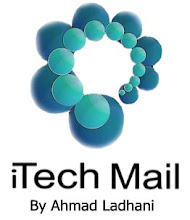
You can measure the size of a man’s regret by how much he spends to make up for his mistakes.
If you’ve missed your girlfriend’s birthday, for example, then that could be a lolcat. If you’re Steve Ballmer and you’ve let Google run away with online search and advertising, that could be $5.5 to $11bn of Microsoft’s operating income for the next five years. Ballmer’s already spent billions more than Microsoft would have on R&D and M&A to build Bing against Google. But is it any good?
Better to pretend netbooks out of existence and call them “low cost small notebook PCs” instead.
And what is it with security? Microsoft’s re-built and re-launched its online anti-virus service – Windows Live OneCare – as Microsoft Security Essentials. But the service is riddled with contradictions: it won’t work on pirated copies of Windows – so there goes the China market. And there’s no incentive for OEMs to put it on their machines, because it’s a free service.
Reg software editor Gavin Clarke and All-About-Microsoft blogger Mary Jo Foley measure the size of Ballmer’s remorse and how it’ll take more than a bunch of flowers and a cute kitten to win over the web-surfing public, sceptical OEMs and millions of PC users across the प्लानेट।
Source: The Register








